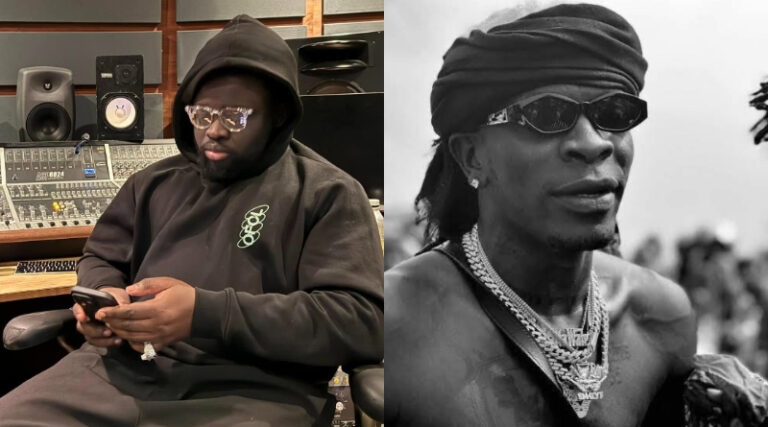The ongoing rift between Ghanaian dancehall star Shatta Wale and record producer MOG Beatz has taken a dramatic new turn, with Shatta Wale firing back at allegations that he failed to pay properly for MOG’s contributions to his music.
Earlier today, MOG Beatz posted on X (formerly Twitter), claiming that Shatta Wale did not pay or credit him for production work. He further alleged that two of Shatta’s projects were subsequently pulled down from Apple Music, sparking intense debate within the music community.

In a strongly worded post on X, Shatta Wale dismissed the allegations, describing MOG Beatz as “ungrateful.” He defended himself by highlighting the support he had given MOG in the past:
“I paid for your mom’s eye surgery and gave you money for studio gear as payment for your beats. That’s a scam, right? No problem! People like you make artists not want to help new producers. Let’s meet face-to-face and see if you can say this to me, ungrateful fool!”
Shatta Wale also shared pictures from music video shoots, referencing MOG’s earlier claims that listed his Reign and Wonderboy albums as affected projects.
The fiery exchange quickly gained traction online, with fans and industry observers debating both sides of the dispute. Some sympathized with MOG Beatz, citing long-standing issues of producer recognition and fair compensation in the Ghanaian music industry. Others sided with Shatta Wale, praising him for supporting MOG personally and financially when he was still establishing himself.
The argument has been trending on entertainment platforms such as ONEKING MULTIMEDIA, with many commentators urging both parties to settle the matter privately to avoid further reputational damage.

As of now, MOG Beatz has not publicly responded to Shatta Wale’s latest remarks, leaving fans eagerly awaiting his reaction. Meanwhile, the takedown of Shatta’s albums from Apple Music remains one of the biggest talking points in the Ghanaian entertainment scene.
This dispute not only underscores the fragile nature of artist-producer relationships, but also highlights the broader challenges of crediting and compensating creative talent in the music industry. Whether the feud escalates further or leads to reconciliation is a question the entire music fraternity is watching closely.




